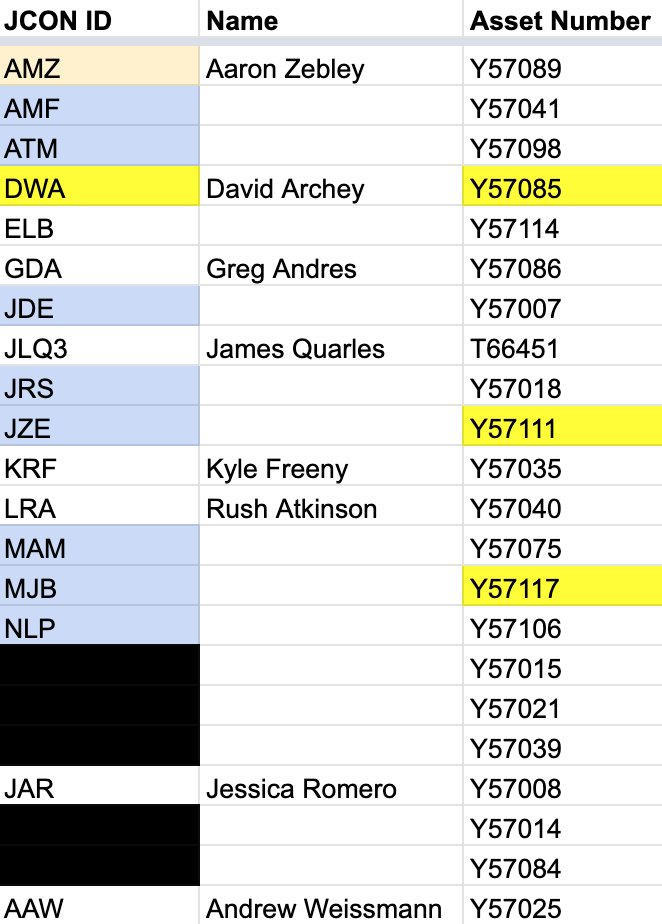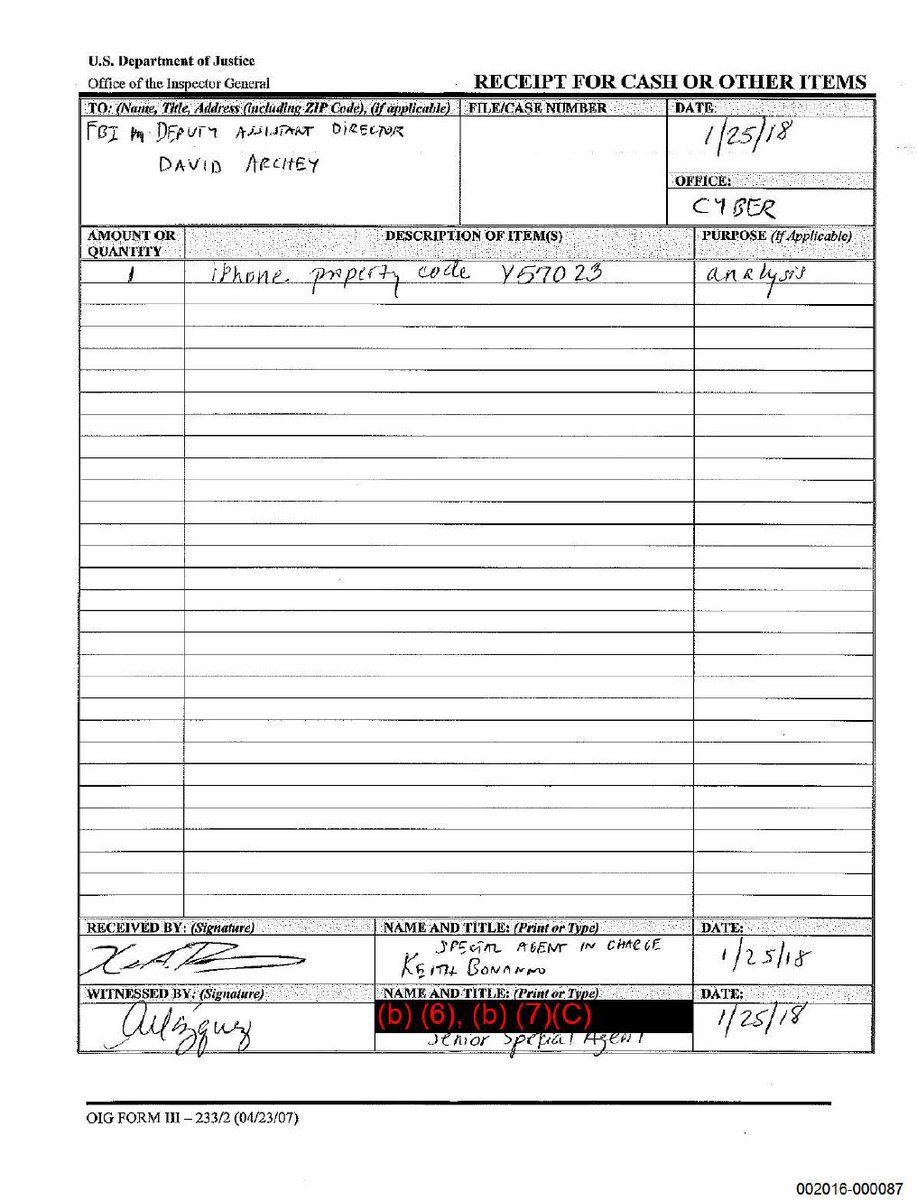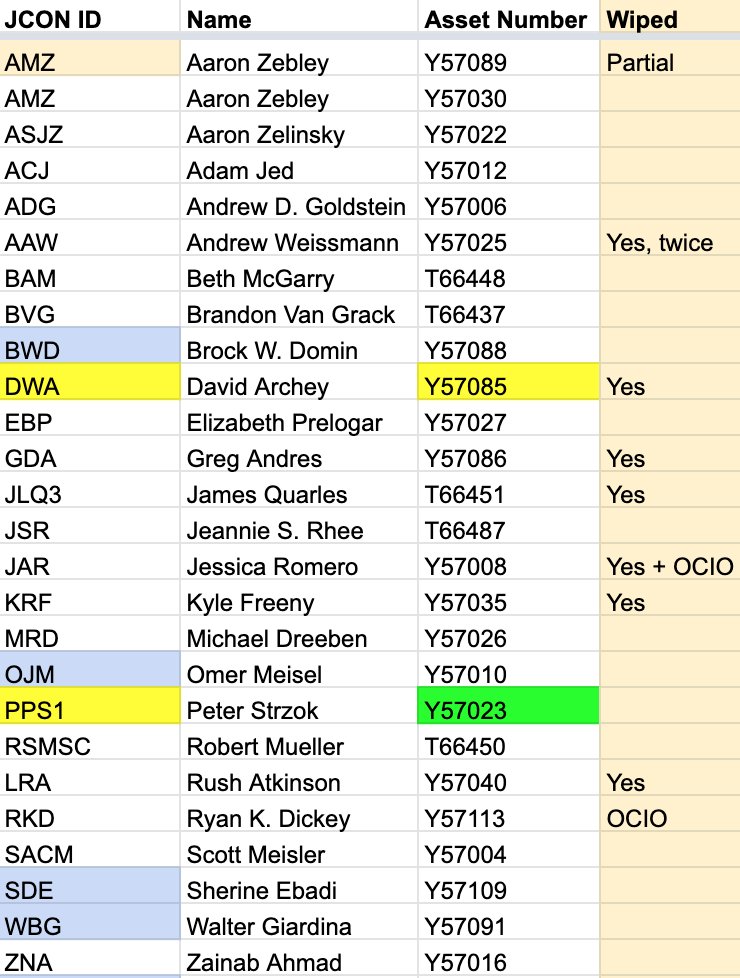I just collated the data from the four Special Counsel's Office (SCO) iPhone inventory logs, equipment return logs, etc. A few findings:
1—During the time covered by the docs, the SCO used 92 unique iPhones....



1—During the time covered by the docs, the SCO used 92 unique iPhones....




2—Four of the phone IDs appear in the inventory logs but are either missing or marked as "N/A" in the records officer's log (which is the source of the evidence for the wiping of the phones.)
One of the four belongs to Zainab Ahmad. Another belongs to Aaron Zebley.
One of the four belongs to Zainab Ahmad. Another belongs to Aaron Zebley.

6—By cross-referencing multiple tables it was possible to lift some of the redaction over the JCON IDs. Those IDs are highlighted blue here: 

7—About the total number of phones wiped... The evidence still shows at least 27 were wiped, but the 17 uniquely identifiable ones is the most bulletproof number to use. If we count the ones wiped by OCIO prior to review, that makes 21. Lisa Page (not wiped be her)—22....
... add to that the 5 phones "reassigned prior to review" we get to the 27 figure I'm standing by.
8—Speculation considering that 4 phones were missing from the records officers log and 5 unidentified ones from from that log were reassigned, I have a sense that at least on of the 4 is part of the 5.
/END/
/END/
Missed a couple of JCON ID names:
HNA - Heather Alpino
BMR - Brian M. Richardson
UEA - Uzo Asonye
If folks can figure out some of these missing ones that would be great. I'm especially interested in LFW.
HNA - Heather Alpino
BMR - Brian M. Richardson
UEA - Uzo Asonye
If folks can figure out some of these missing ones that would be great. I'm especially interested in LFW.

Update to #3 -- there were 22 uniquely identifiable iPhones which were wiped, not 17. (Lisa Page's phone is part of the 22.)
• • •
Missing some Tweet in this thread? You can try to
force a refresh









